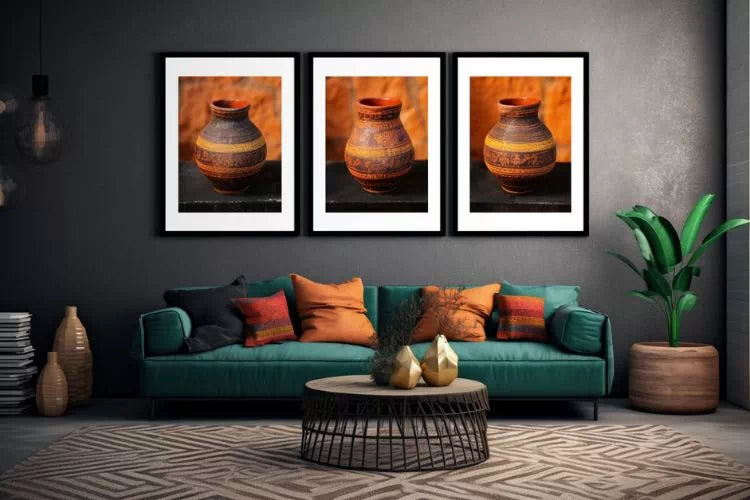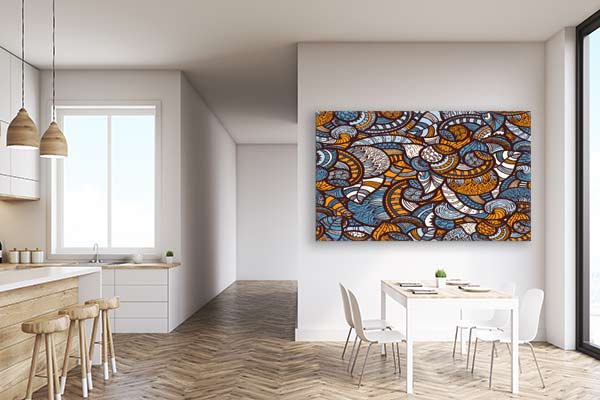Incorporating an African painting into your interior design can transform your space into a place rich in culture and aesthetics. However, to create visual harmony, it is essential to know how to pair these unique pieces of art with the colors already present in your interior. In this article, we guide you through strategies for harmonizing an African painting with your existing color palette, ensuring a cohesive and aesthetically pleasing result.
Understanding African Color Palettes
African paintings are often characterized by bright, bold colors, inspired by the continent’s nature and cultural traditions. Warm hues like red, orange, and yellow, as well as earthy colors like brown and ochre, are frequently used to represent the warmth and vitality of Africa. Other colors, like deep blue and emerald green, evoke African skies and lush landscapes. To harmoniously combine these colors, it’s crucial to understand the nuances present in the artwork and connect them to your interior design.
Choosing complementary colors
An effective way to integrate an African painting into your decor is to use complementary colors. Complementary colors are those that are opposite each other on the color wheel. For example, a painting dominated by warm tones like orange or red can be beautifully complemented by walls or accessories in blue or green hues. This approach creates a strong visual contrast while maintaining aesthetic balance. By using complementary colors, you highlight both the painting and your interior decor.
Create a monochrome palette
If your space already has a dominant color palette, consider incorporating an African print into a monochromatic version of those colors. For example, if your living room is decorated primarily in shades of blue, look for an African print that incorporates different shades of blue. This creates a visual continuity that ties the print into the overall room, while also adding depth and texture. A monochromatic African print can be both subtle and powerful, adding an artistic dimension without breaking the harmony of the space.
Use neutral colors to balance
African paintings are often rich in detail and color, which can sometimes seem overwhelming in an already busy room. In such cases, using neutral colors like white, gray, beige, or black can help balance the visual effect. Neutral colors serve as a backdrop, allowing the African painting to shine without clashing with other decor elements. Make sure the furniture and accessories in the room echo these neutral hues to create a strong, cohesive foundation against which the painting can stand out.
Harmonize patterns and textures
In addition to colors, patterns and textures play a crucial role in how an African painting will complement your interior design. African paintings often feature tribal patterns and varied textures. For a harmonious effect, incorporate similar patterns into your textiles, such as cushions, rugs or curtains. This creates a visual continuity that ties the painting to the rest of the room. Natural textures like wood, rattan or linen can also complement the textural richness of an African painting, adding an organic and authentic touch to your interior.
For tips on selecting the perfect African painting for your space, read our comprehensive guide: African Painting: How to Choose the Perfect Artwork for Your Space .





Leave a comment
This site is protected by hCaptcha and the hCaptcha Privacy Policy and Terms of Service apply.